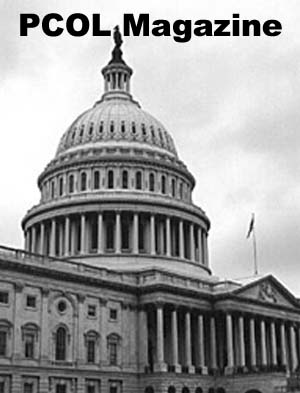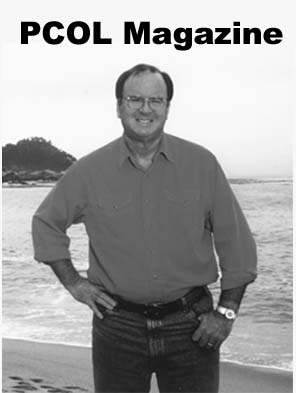
| By Admin1 (admin) on Wednesday, June 18, 2003 - 11:35 am: Edit Post |
Significant Differences between the House (HR 2441) and Senate (S 925) Versions of the Peace Corps Bill

1. The House version contains a new reporting requirement for the Peace Corps called the "Annual Report on Congress on the Federal Equal Opportunity Recruitment Program" on the progress of the Peace Corps in recruiting historically underrepresented groups. This clause is not included in the Senate Version.If it comes down to supporting one version of the bill in its entirety over the other, then PCOL supports the Senate version of the bill because the Senate version addresses the purpose of the Innovation Fund and the administration of the Innovation Fund in a way that will make a big difference in the success of the fund.
Assessment: Not an important difference. This is already a priority with the Peace Corps.
2. The House version contains a new reporting requirement for the Peace Corps to "Maintain the Integrity of the Medical Screening and Medical Placement Coordination Process" that describes the medical screening procedures and standards of the Office of Medical Services/Screening Unit of the Peace Corps to determine whether an applicant for Peace Corps service has worldwide clearance, limited clearance, a deferral period, or is not medically, including psychologically, qualified to serve in the Peace Corps as a volunteer and analyzes Peace Corps volunteers who have terminated their service early due to medical, including psychological, reasons. This clause is not included in the Senate Version.
Assessment: This report is a good idea and could help the Peace Corps focus on reducing volunteer attrition.
3. The House version has an eleven member Peace Corps Advisory Council with six of the members being RPCVs and with members appointed by the Peace Corps Director and having two year terms. The Senate version has a seven member Council with four of the members being RPCVs and with members appointed by the President and having two year terms.
Assessment: Not an important difference.
4. The House version increases the re-adjustment allowance to $275 in 2004 and $300 in following years. The Senate version increase the allowance to $275 and it stays at $275.
Assessment: Not an important difference.
5. The House version says the purpose of the Innovation Fund is to "provide support for returned Peace Corps volunteers to develop and carry out programs and projects to promote the objectives of the Peace Corps Act, as set forth in section 2(a) of that Act (22 U.S.C. 2501(a))." The Senate version says the Innovation Fund is "to provide support for returned Peace Corps volunteers to develop and carry out programs and projects to promote the third purpose of the Peace Corps Act, as set forth in section 2(a) of that Act (22 U.S.C. 2501(a)), relating to promoting an understanding of other peoples on the part of the American people."
Assessment: Our reading is that the House version would let RPCVs use grants from the Innovation Fund to promote any of the objectives of the Peace Corps while the Senate version would only allow funds to be used to promote the third goal. The US Peace Corps is already promoting goals 1 and 2 of the Peace Corps and with notable exceptions like World Wise Schools has never concentrated on the third goal of the Peace Corps. Our position is that the third goal is the responsibility of the RPCV community. That is the whole rationale for promoting the third goal with the creation of the Innovation Fund. Therefore grants through the Innovation Fund to RPCVs should be limited to third goal activities so as not to dilute the effect of their efforts. PCOL strongly supports the Senate Version.
6. In the House version the Peace Corps Director makes the award grants from the Innovation Fund to RPCVs or he or she may delegate this authority to the Corporation for National and Community Service. In the Senate version, the Corporation for National and Community Service makes the grants.
Assessment: In February, 2002 when PCOL initiated the discussion of the "New Mandate" legislation and later in May, 2002 when we published a draft version of the legislation for comment by the RPCV community, one of the arguments made against the Innovation Fund was that the Innovation Fund would become confused with funding for the US Peace Corps and create an "unreasonable constraint upon the use of Peace Corps funds." That was when Senator Dodd and his staff came up with the solution of having the Innovation Fund budgeted as a separate line item and administered separately with grants awarded by the Corporation for National and Community Service so that there could be no confusion that these were two separate and independent items in the budget.
The House version of the bill returns grant authority to the US Peace Corps. This creates an improper role for the NPCA and other RPCV organizations seeking grants and would result in their dependency upon the Peace Corps. This is a step backwards and therefore a step in the wrong direction. The power to award grants should be put in the hands of the Corporation for National and Community Service and based on objective criteria because they have experience making grants of this type and they are independent of the US Peace Corps.
Furthermore the present administration of the US Peace Corps has not endorsed the idea of the Innovation Fund or indicated that they see the value in third goal grants. This is an important issue. The third goal grant awards need to be made out of the Corporation for National and Community Service. PCOL strongly supports the Senate version.
7. The House version says grant requirements for funding individual programs or projects by returned Peace Corps volunteers under the Innovation Fund are not to exceed $50,000. The Senate version puts a limit of $100,000 on the grants.
Assessment: Not an important difference.


